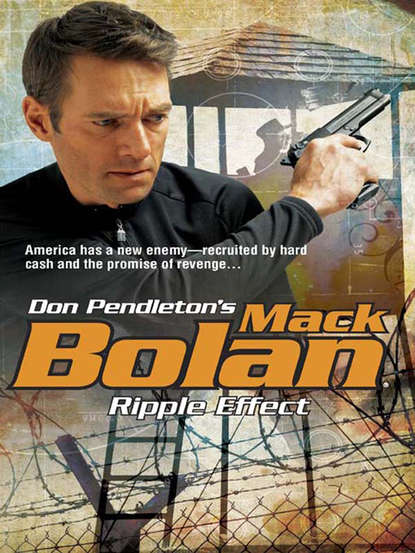По всем вопросам обращайтесь на: info@litportal.ru
(©) 2003-2024.
✖
Ripple Effect
Автор
Год написания книги
2019
Настройки чтения
Размер шрифта
Высота строк
Поля
“And work your way down column one, then back up to the top of column two? Or zigzag down the page?”
Armstrong pretended not to know that the jarhead was making fun of him. “Straight down, I think. If that’s all right with you.”
“Whatever,” Lewis said. “These clowns aren’t going anywhere. You want to start right now?”
“Ideally, yes,” Armstrong replied.
“Suits me. I’ll see if we have an interpreter available.”
Armstrong relaxed and watched the officer go through his pantomime. In fact, as he well knew, Camp X-ray always had interpreters available. It couldn’t function otherwise, with prisoners who spoke at least three languages aside from Arabic.
After another moment on the telephone, Lewis cradled the receiver, donned a tight-lipped smile and said, “I have a man you can use to get started this morning. Later on today, we’re jammed up pretty tight.”
“Where there’s a will….”
“I’ll see what I can do. No promises.”
“Of course.” He didn’t feel like flexing any hidden muscles at the moment. If the jarhead still felt prickly around lunchtime, Armstrong would reach out and pull whatever strings it took to scorch his lazy ass.
“In that case,” Lewis said, “we’re just waiting for the interpreter. He’s coming over from the barracks as we speak.”
“That should be—”
Sudden rapping on the office door distracted him. The sergeant from the outer waiting room entered, flicked a distracted glance at Armstrong, then told Lewis, “Sir, we’ve had another…incident.”
“Explain,” Lewis commanded. When the sergeant looked again at Armstrong, the lieutenant added, “Sergeant, please speak freely.”
“Yes, sir. It’s another suicide attempt. One of the inmates tried to hang himself.”
“Which one?”
The sergeant looked down at his cupped left hand, where Armstrong saw a sticky note not quite concealed. “His name’s Hasam Khaled, sir. Just a nobody, as far as we can tell. One of the men on walk-through found him hanging in his cell and cut him down.”
“You said he tried to hang himself. How badly is he hurt?” Lewis inquired, sounding as if he didn’t really care much either way.
“Should be all right, sir. That’s the word for now, at least. The medics have him in sick bay.”
“All right. Dismissed.”
The sergeant wheeled around and left the office, closed the door behind him.
“Lieutenant,” Armstrong said, “I’d like to climb out on a limb here, and suggest a change of plans.”
“Not sure I follow you,” said the Marine.
“I’d like to reprioritize that list a bit.”
“Meaning?”
“I want to put a new name at the top.”
“Okay. Which one?”
“I’ll have my first chat with Hasam Khaled.”
“The loser who just tried to off himself?” Lewis seemed surprised.
“That’s right.”
“You mind if I ask why, exactly?”
As it happened, this time Armstrong didn’t mind at all. “He’s anxious to get out of here by any means available,” he said. “That tells me that he’s either cracked and lost his mind—or maybe, just maybe, has something to hide.”
AT FIRST, HASAM KHALED believed that he had found his way to Paradise, but then he felt the harsh pain in his neck and grimaced as his vision cleared. If this was Paradise, then the imam had lied and there was no reward worthy of sacrifice.
Before that sacrilegious thought could take root in his head, Khaled woke to the fact that he was still alive, apparently sequestered in the camp’s infirmary. He had accomplished nothing, other than inflicting needless pain upon himself.
Hoping the noose might have destroyed his vocal cords, he cleared his throat, then tried to speak. The words were hoarse and painful, but he heard them clearly, even though he whispered.
“Doctor,” someone said beyond his line of sight, “this one’s awake.”
“Good thing,” another voice replied. “I’ve got them breathing down my neck.”
Khaled was functional in English, but he still had trouble with its slang and idioms. Why, for example, would one person breathe into another’s neck, except for purposes of artificial respiration? And the second speaker clearly didn’t require such treatment, since he had ability to breathe and speak unaided.
Faces loomed beside his narrow bed, one man with a white coat over his uniform, the other garbed in the fatigues worn by all guards throughout the camp. Khaled had studied rank insignia for the Great Satan’s military forces, and he recognized the white coat as a first lieutenant, while the other was a corporal of the United States Marines.
His mortal enemies.
“Mr. Khaled?” The white coat peered into his face and raised a fist, the index finger pointed up. “How many fingers do you see?”
He had a normal hand. “Five,” Khaled said.
The white coat raised another finger, to create a V. “How many now?” he asked.
“Still five.”
“He’s yanking you, Lieutenant,” the corporal said.
“You think?”
Scowling, the officer informed Khaled, “You have some visitors. Their sense of humor sucks.”
Khaled did not attempt to turn his head. He’d let his enemies do all the work, while he focused upon resisting them.
A moment later, two new faces flanked his bed. One was a sergeant in his early twenties, while the other was a slightly older man, blond haired, wearing some kind of business suit.
The suit spoke first. “Hasam Khaled?”











